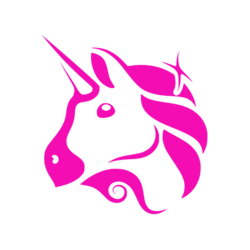Union DAOs Could Influence Community Governance and Data Monetization in Multi-Chain Ecosystems
UNI/USDT
$95,366,119.87
$3.608 / $3.468
Change: $0.1400 (4.04%)
-0.0037%
Shorts pay
Contents
-
Union DAOs are emerging as pivotal players in advancing community governance and data monetization across multi-chain blockchain platforms.
-
These decentralized autonomous organizations emphasize scalable, secure frameworks that empower users and foster interoperability within the evolving DeFi landscape.
-
According to the Crypto Council for Innovation, “The regulatory environment around DAOs remains to be determined, posing challenges in jurisdiction, securities laws, anti-money laundering, taxation, and consumer protection.”
Union DAOs drive innovation in decentralized governance and data monetization, focusing on security, scalability, and regulatory compliance in multi-chain ecosystems.
Union DAOs Champion Scalable and Secure Community Governance Models
Union DAOs, including prominent entities like Union and Data Union DAO, are spearheading the development of community governance frameworks that prioritize both security and scalability. These organizations aim to create robust digital ecosystems by integrating aggregation techniques and promoting interoperability across various blockchain networks. By focusing on user-centric governance, Union DAOs enable participants to have a direct say in decision-making processes, fostering transparency and collective ownership.
While specific leadership structures remain confidential, the strategic direction of Union DAOs highlights their commitment to advancing data monetization and creating frameworks that support decentralized innovations. Their initiatives emphasize chain abstraction, which allows seamless interaction between different blockchains, thereby enhancing the overall efficiency and inclusiveness of governance mechanisms.
Regulatory Landscape and Its Impact on DAO Adoption
The regulatory environment surrounding DAOs is complex and evolving, presenting both challenges and opportunities for these organizations. Compliance with jurisdictional laws, securities regulations, anti-money laundering policies, taxation, and consumer protection standards is critical for sustainable growth. The Crypto Council for Innovation underscores the uncertainty in this space, noting that regulatory clarity will significantly influence the pace at which DAOs can scale and gain mainstream acceptance.
Industry stakeholders must navigate these regulatory hurdles carefully to avoid legal pitfalls while maintaining the decentralized ethos that defines DAO operations. Effective governance models that incorporate compliance measures without compromising decentralization are essential for long-term viability.
Union DAOs as Catalysts in Decentralized Finance Evolution
Union DAOs are viewed by experts as potential accelerators in the evolution of decentralized finance (DeFi). Their governance frameworks align with broader industry trends that prioritize transparency, community participation, and value-driven project development. By fostering inclusive governance, these DAOs encourage investor confidence and active user engagement, which are vital for the maturation of DeFi ecosystems.
The financial trajectory of Union DAOs could mirror successful models like Uniswap, which leveraged governance tokens to empower stakeholders and drive platform growth. However, the success of such models depends on balancing innovation with regulatory adherence, ensuring that governance remains both effective and compliant.
Leveraging Historical DAO Models to Enhance Data Economy Governance
Union DAOs draw inspiration from established platforms such as Uniswap and Decentraland, which utilized governance tokens to facilitate technological advancements and community-driven decision-making. These precedents provide valuable frameworks for emerging DAOs aiming to build participative governance structures that enhance user engagement and operational transparency.
Analysts from Kanalcoin suggest that Union DAOs are well-positioned to harness these historical insights to influence the data economy significantly. By promoting interoperability and robust governance protocols, they can drive innovation in how data is monetized and managed across decentralized networks.
Conclusion
Union DAOs represent a significant step forward in the development of decentralized governance and data monetization frameworks within the blockchain ecosystem. Their focus on security, scalability, and regulatory compliance positions them as key contributors to the future of decentralized finance and multi-chain interoperability. As regulatory clarity improves and community participation deepens, Union DAOs are likely to play an increasingly influential role in shaping the digital economy.
Comments
Other Articles
Bitwise Files for 11 Altcoin ETFs Including AAVE, UNI Amid SOL, XRP Muted Gains
December 31, 2025 at 08:47 PM UTC
Ethereum Whales Trim ETH Longs and Pivot to BTC in Dec 31 On-Chain Rebalance Update
December 31, 2025 at 01:27 PM UTC
Bitwise Seeks SEC Approval for 11 Crypto ETFs Targeting AAVE, UNI, TAO
December 31, 2025 at 01:17 PM UTC
